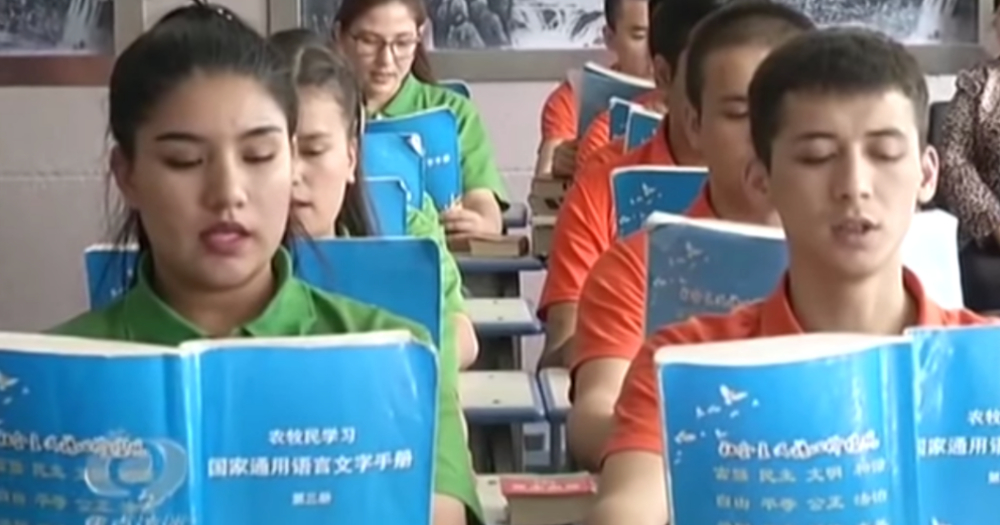In a 15-minute episode of Focus Report, a popular talk show by state media CCTV, released on Oct. 16, attendees at Xinjiang's "re-education centres" said they were happy, and expressed their gratitude to the Chinese government for helping them change for the better.
China has recently officially acknowledged the existence of such "re-education" or "vocational training centres". Prior to this, Beijing had consistently denied their existence.
These facilities were slammed by the United Nations for being 'concentration camps' that forcibly detain Uighur Muslims and subject them to harsh treatment.
China has denied such allegations, saying such centres teach students the Chinese language and train them in skills to help them with better employment opportunities.
The Focus Report episode was the first time Chinese state media talked about the controversial topic at length.
Everything is awesome
This is how the host opened the programme:
"Terrorism" and "religious extremism" are the public enemy of both civilised society and the international community.
Separatist forces, religious extremist forces and terrorist forces have planned and carried out thousands of violent terrorist acts in Xinjiang, resulting in the deaths of several innocent citizens, hundreds of public security forces, and causing immeasurable damage."
It then brought viewers to 和田市职业技能教育培调中心, which roughly translates into 'Hotan City Vocational and Education Training Centre':
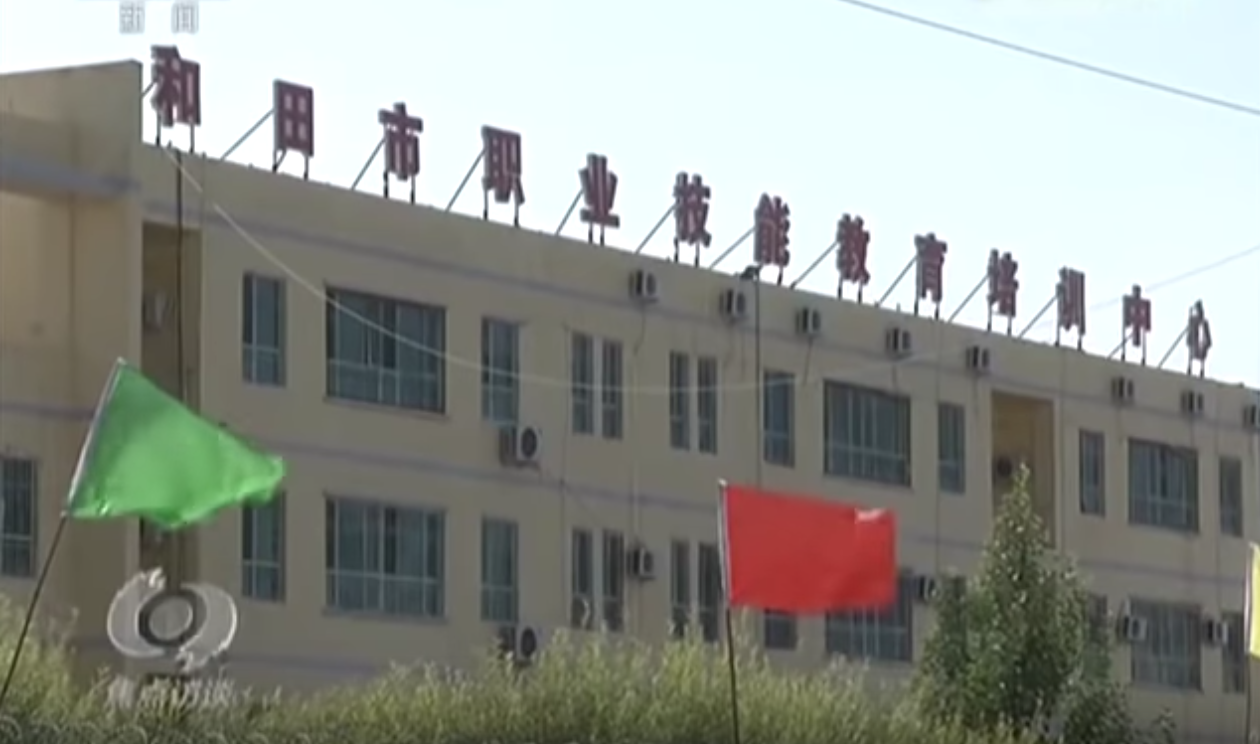
There, attendees were seen learning the following:
Chinese language
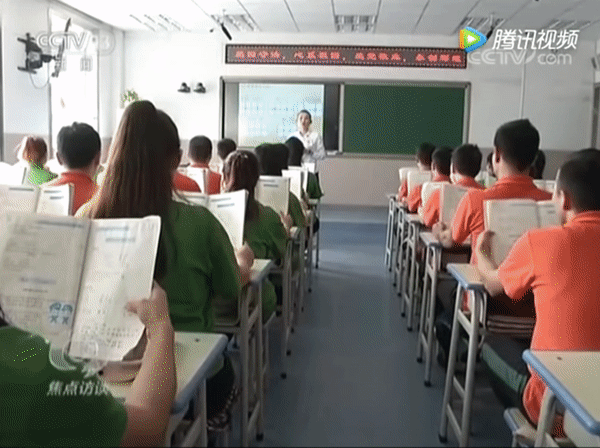 GIF adapted via Focus Report/CCTV
GIF adapted via Focus Report/CCTV
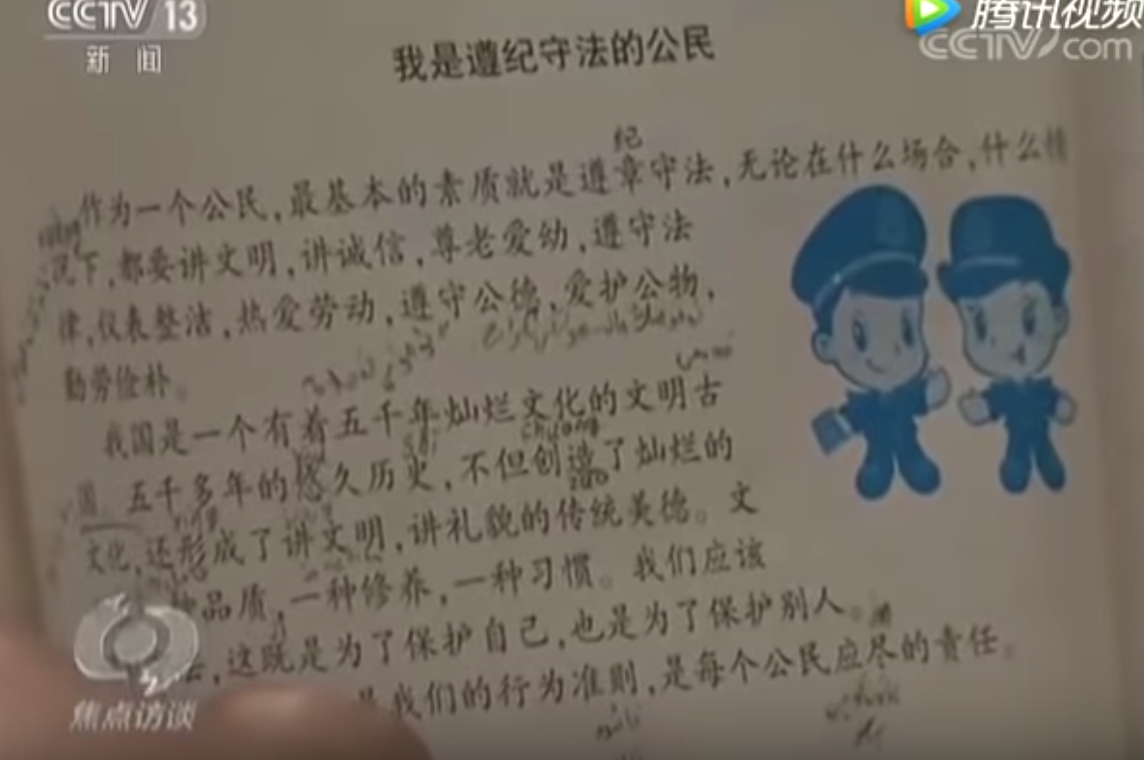 This part of the textbook talks about being a "good, law-abiding citizen". The second paragraph includes a mention of how China's "long" and "vibrant" 5,000 years of history had led to a civilised and polite culture in present times. (Screenshot via Focus Report/CCTV)
This part of the textbook talks about being a "good, law-abiding citizen". The second paragraph includes a mention of how China's "long" and "vibrant" 5,000 years of history had led to a civilised and polite culture in present times. (Screenshot via Focus Report/CCTV)
An attendee who was interviewed said that now that she knows the Chinese language, she can get a job wherever she goes.
Law
Besides learning the language, attendees of the centre also have to learn basic knowledge of the law.
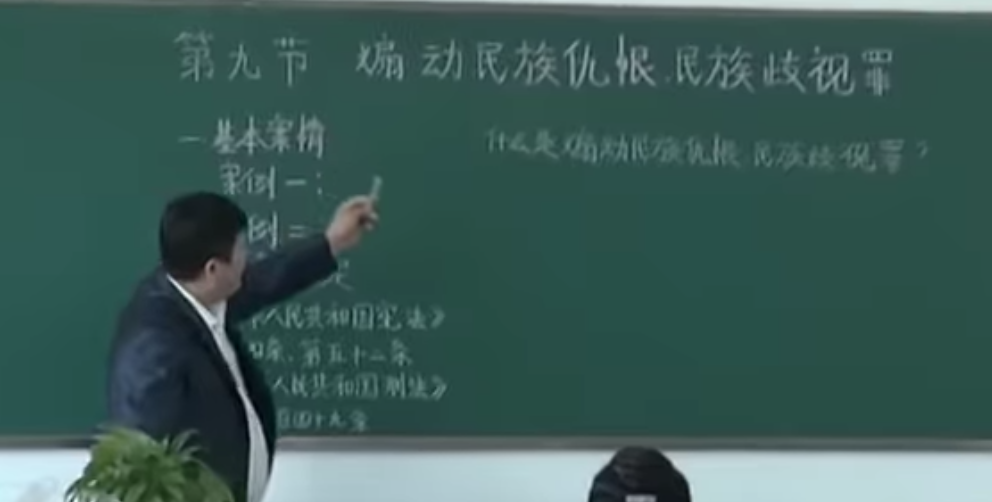 In this particular lesson, the attendees were learning about the "incitement to racial hatred and ethnic discrimination" crime. (Screenshot via Focus Report/CCTV)
In this particular lesson, the attendees were learning about the "incitement to racial hatred and ethnic discrimination" crime. (Screenshot via Focus Report/CCTV)
The voiceover says:
"By learning about the law, students understand that as Chinese citizens, not only are they protected by the law, their behaviour is also limited at the same time.
They then truly understand what's legal, and what's not legal."
Making clothes, construction, beauty services, baking etc.
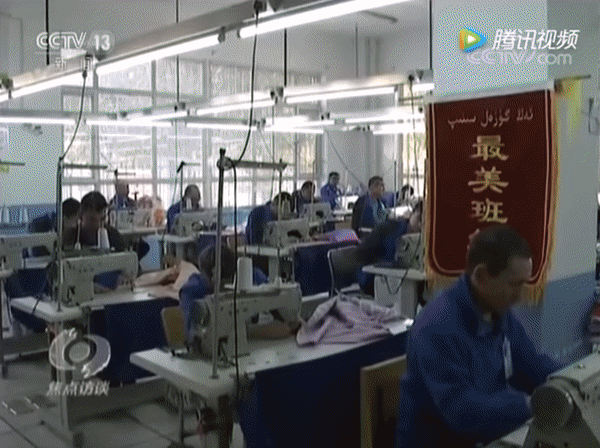 GIF adapted via Focus Report/CCTV
GIF adapted via Focus Report/CCTV
The voiceover added that it is mandatory for attendees to learn at least one skill.
Attendees were also seen being awarded with certificates after completion of the 'course':
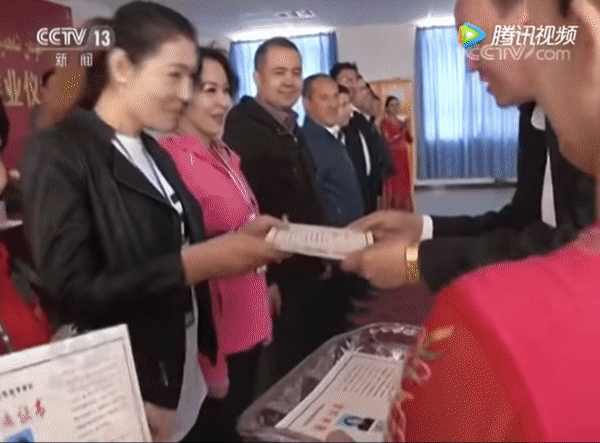
Changed for the better after attending the camp
Attendees who were featured in the show all spoke in fluent Mandarin Chinese and said they were glad they came to the centre.
An attendee named Abdul said:
"Through this learning process, I deeply recognise my own mistakes.
After I go back home, I'll continue to work hard and be a good citizen, and influence the people around me positively."
Another attendee named Turenisha Abdulla said:
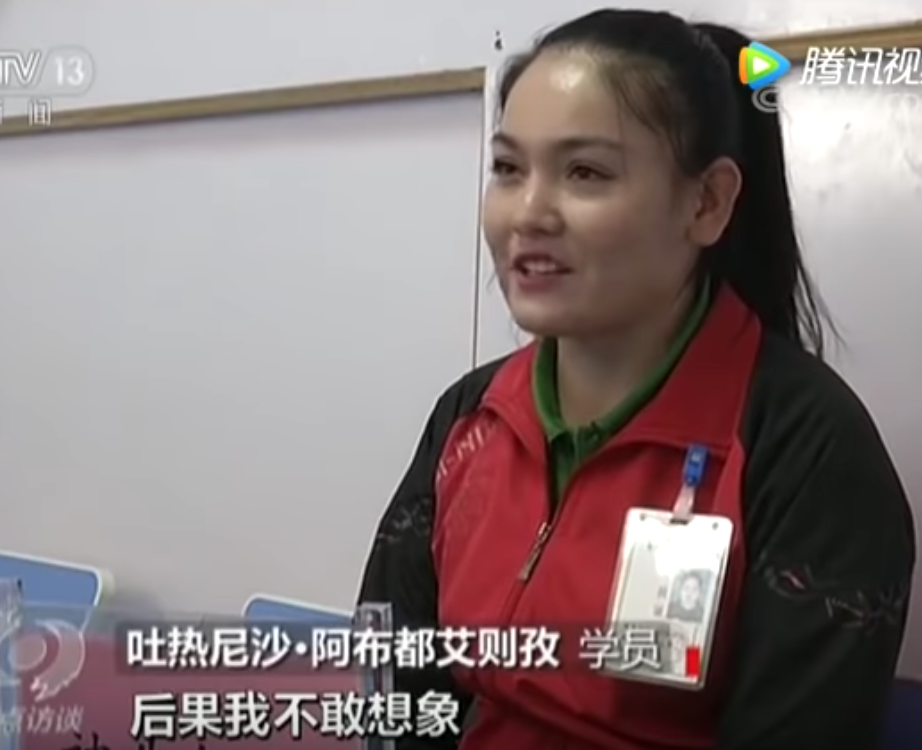
"If I hadn't come here, the consequence would have been unthinkable.
I might have continued to follow those religious extremists and gone down the path of crime.
The Party found me in time, saved me, and gave me a chance to turn over a new leaf.
I'm extremely grateful. I'll take practical action to prove my heart of gratitude.
And when asked if he would like to go back to the life he had before, an attendee learning carpentry replied in the negative.
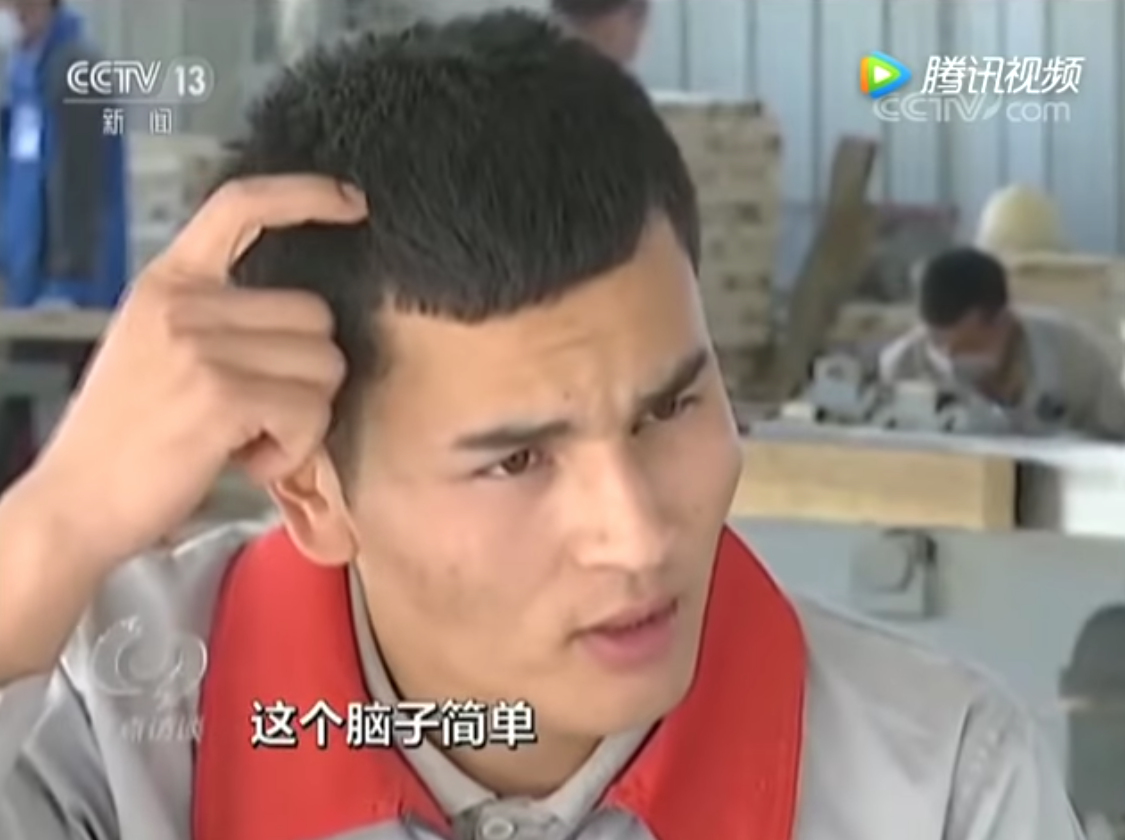
Pointing to his head, he said:
"This mind is simple. It was impoverished. I also didn't have any money.
But when our minds are enriched, we become richer."
More than one attendee said they, as well as their families, were happy.
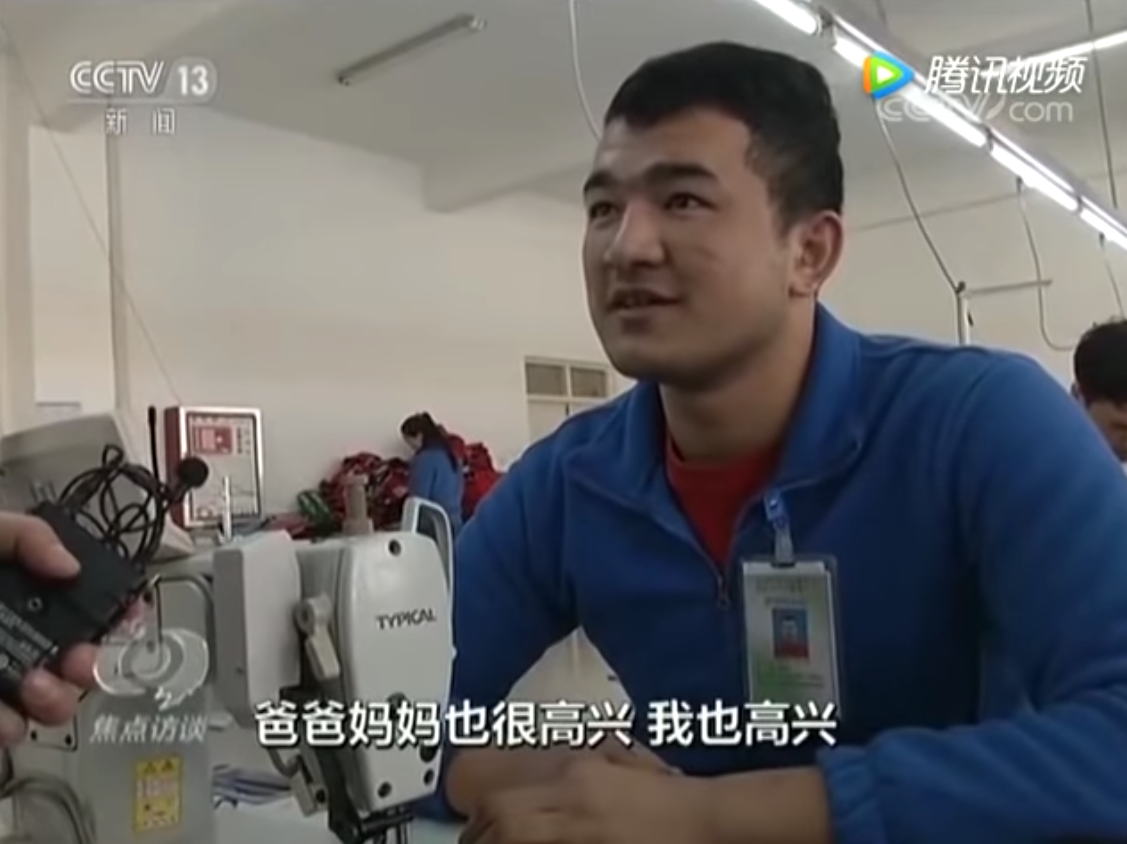 Screenshot via Focus Report/CCTV
Screenshot via Focus Report/CCTV
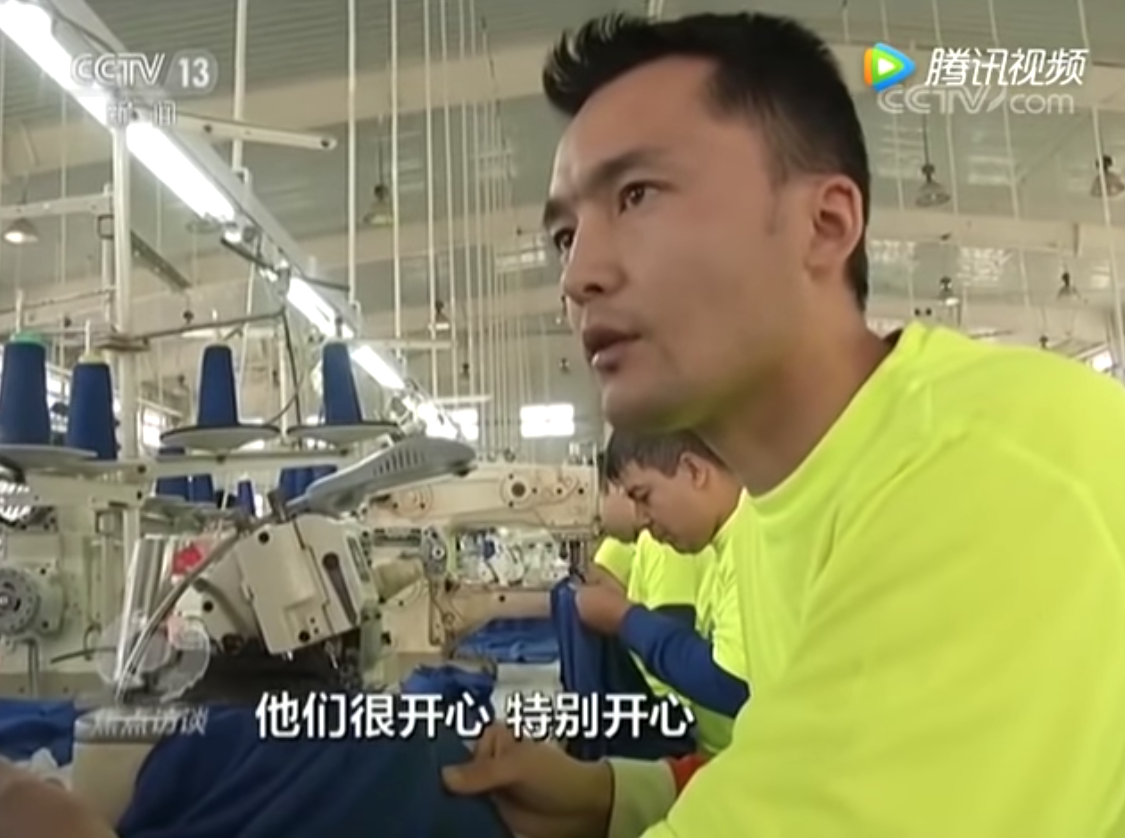 Screenshot via Focus Report/CCTV
Screenshot via Focus Report/CCTV
Vulnerable to religious extremism
In between, the voiceover explained that Hotan is an impoverished area, where many of the locals do not understand the country's common language -- Mandarin Chinese.
In addition, it said that some have a weak sense of the rule of law, and have trouble looking for jobs due to a lack of skills.
According to the programme, these people are especially susceptible to the ideologies of terrorism and religious extremism.
All these for free
The voiceover also said attendees were able to stay in comfortable rooms where they could relax and engage in leisure activities and have nutritious meals without paying a single cent.
It pointed out that each dormitory room had an air-conditioner installed, despite most families in the area not having one for they were too poor.
Throughout the episode, there was no mention of the attendees being Uighurs or Muslims.
It is worth noting that although foreign media have referred to the centres as camps for "Uighur Muslims", Chinese state media have avoided mentioning the Islam religion, choosing to focus on the issue of terrorism and religious extremism instead.
Mixed reactions from netizens
Reactions from netizens were mixed.
While many thought the camps are effective at helping to reduce the threat of terrorism, some others believe there is more to it than meets the eye.
Great government initiative
 Screenshot via YouTube
Screenshot via YouTube
Good, although the execution is crude. But looking at it in the long run, the pros definitely outweigh the cons.

Good idea. This policy needs to be maintained for a 100 years.

Having schools is better than having prisons. Isn't it much better to add a skilled worker to society, rather than a jobless person? Money well spent.

The Party's only mistake in handling Muslims with such behaviour is that they were too gentle. The Party is targeting extremists, not the Uighurs.
This is terrible

Detaining many innocent people infringes on their human rights, and results in families being separated. The real terrorist here is the PRC.

Deceiving the masses is a basic play from the Communist Party's playbook.

What I felt was a sense of oppression and fear.
 Screenshot via YouTube
Screenshot via YouTube
When Nazi concentration camps first started, they also didn't kill anyone immediately. Round them up first before deciding whether or not to kill depending on the situation.
Books, stationery & tear gas
AFP reported that an examination of more than 1,500 government documents available to the public, including official work reports and budgets, revealed that the centres are "run more like jails than schools".
Xinjiang's party secretary Chen Quanguo was quoted in one of the documents saying that the centres should "teach like a school, be managed like the military, and be defended like a prison".
The AFP report also claimed that among the equipment purchased for the centres such as furniture, cutlery and bunk beds, there were orders for police uniforms, pepper spray, tear gas and stun guns too.
One centre allegedly put in an order for "tiger chairs", a device used by the police to "restrain interrogation subjects".
At the centres, students had to write regular "self-criticisms" too -- a practice reminiscent of the Mao Zedong era where it was used to fan ideological fervour.
It was put to a stop by Deng Xiaoping, and then partially revived under the current President Xi Jinping.
You can watch the full episode here:
[related_story]
Top image via Focus report/CCTV
If you like what you read, follow us on Facebook, Instagram, Twitter and Telegram to get the latest updates.
